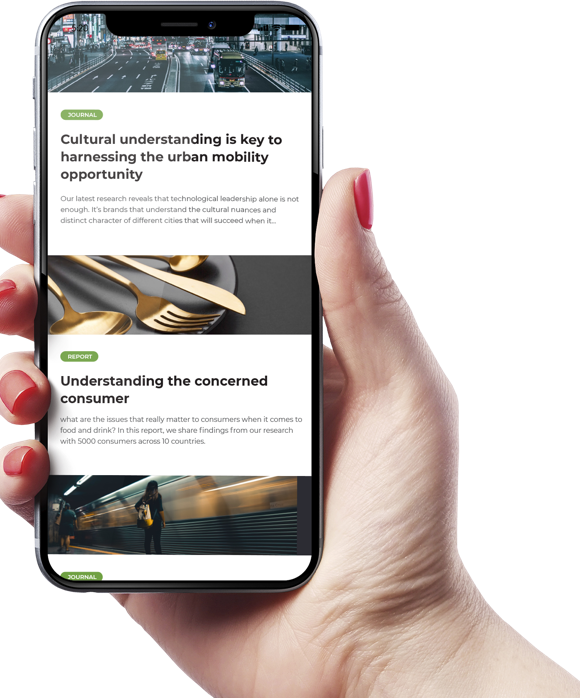Have you ever found yourself hesitating before making a purchase? You may have been unsure about the quality of the product or whether you could afford it. Or maybe you were simply feeling uncertain about the future and didn’t want to commit to something that might not be a wise investment.
Whatever the reason, you’re not alone. Uncertainty is a common experience for many consumers and can significantly impact buying decisions. It’s important to understand uncertainty’s role in consumer behavior and how we can respond to it to better meet our customers’ needs.
In this article, we’ll explore the fascinating world of consumer psychology during times of uncertainty. We’ll delve into the effects of uncertainty, how consumers respond to it, and what marketers can do to adjust their strategies accordingly.
We’ll also discuss market research’s crucial role in understanding and responding to uncertainty and provide some practical tips for conducting research during uncertain times.
So buckle up and get ready for a deep dive into the unpredictable waters of consumer purchasing behavior!
The Concept of Uncertainty
Let’s break down the different types of uncertainty.
Economic uncertainty is perhaps the most well-known and pervasive form of uncertainty. It can arise from various factors, such as recessions, inflation, or changes in government policies. When consumers are uncertain about their financial futures, they may be more cautious about spending money and prioritize essentials over luxury items.
Social uncertainty, on the other hand, can arise from changes in social norms or cultural values. For example, the #MeToo movement sparked a reckoning in many industries as consumers became more aware of issues related to sexual harassment and assault. This led to increased uncertainty about what behavior is considered acceptable in the workplace and beyond, which may have affected consumer preferences and buying decisions.
Personal uncertainty can stem from various sources, such as health concerns, relationship issues, or significant life transitions. When consumers are experiencing personal uncertainty, they may be more likely to prioritize products or services that offer a sense of stability or comfort, such as self-care products or experiences that provide a sense of escapism.
The Effects of Uncertainty
For one thing, uncertainty tends to make consumers more cautious about spending money. Consumers may be more likely to save their money for a rainy day when the future feels unpredictable rather than splurge on non-essential items. This can be especially true during times of economic uncertainty, such as recessions or market crashes, when consumers may be worried about losing their jobs or experiencing a decline in their financial well-being.
Uncertainty can also lead consumers to seek out products or services that offer a sense of stability or security. For example, during social or political uncertainty, consumers may be more likely to support brands or businesses that align with their values or offer a sense of community or belonging. Similarly, during times of personal uncertainty, consumers may be drawn to products or services that provide a sense of comfort or escape, such as luxury goods or experiences.
The effects of uncertainty on consumer behavior can be complex and multifaceted. Still, uncertainty can significantly impact consumers’ willingness to take risks and make purchases. It’s essential for brands to be aware of these effects and to adapt their strategies accordingly. By understanding how uncertainty affects consumer behavior, we can better tailor our messaging, products, and services to meet the needs of our customers, even in the most uncertain of times.
Consumer Response to Uncertainty
Consumers may respond in various ways when faced with uncertainty, depending on their personal circumstances and individual preferences. However, some common patterns tend to emerge when consumers feel uncertain about the future.
One of the most notable responses to uncertainty is a tendency to seek more information before purchasing. When consumers feel uncertain about the quality, safety, or value of a product, they may be more likely to do their research and read reviews before making a decision. This can be especially true during times of uncertainty, when consumers may be more risk-averse and less willing to take chances on products they need to learn more about.
Another common response to uncertainty is a preference for familiar brands or products. Consumers may be more likely to stick with brands or products they know and trust when the future feels unpredictable rather than experimenting with new or unfamiliar options. This can be especially true during times of economic uncertainty, when consumers may be looking for ways to save money and reduce risk.
Additionally, during times of uncertainty, consumers may be more likely to prioritize practical needs over aesthetic or luxury desires. For example, during a recession, consumers may be more likely to purchase essential items like food and clothing rather than splurge on expensive vacations or high-end fashion items.
Implications for Marketers
As we’ve seen, uncertainty can significantly impact consumer behavior, affecting everything from purchasing decisions to brand loyalty. For marketers, it’s important to be aware of how uncertainty affects their target audience and to adapt their strategies accordingly.
One key implication for marketers is the need to reassure consumers during times of uncertainty. This can involve emphasizing the quality, safety, and reliability of products and services and addressing any concerns or questions consumers may have. By providing clear and transparent messaging, marketers can help build trust and loyalty among consumers, even during times of unpredictability.
Another critical consideration for marketers is pricing strategy. During times of uncertainty, consumers may be more price-sensitive and risk-averse, making it challenging to attract and retain customers. To address this, marketers may need to adjust their pricing strategies to reflect changing consumer behavior, such as offering discounts or promotions to incentivize purchases.
Additionally, marketers must be more flexible and adaptable in their approach, as consumer behavior can shift quickly in response to changing circumstances. This may involve experimenting with new marketing channels or tactics or being open to adjusting messaging or product offerings as needed.
Lessons from Past Uncertain Times
The 2008 Financial Crisis
During the financial crisis of 2008, many consumers became more cautious about spending money, particularly on luxury goods and services. As a result, brands that relied heavily on discretionary spending, such as high-end fashion labels and luxury hotels, saw a significant decline in sales. At the same time, consumers became more interested in value-driven products and services, such as budget airlines and discount retailers.
Many luxury fashion brands responded by offering affordable options like diffusion lines and collaborations with fast fashion retailers. For example, designer Versace partnered with H&M, a popular fast fashion brand, to reach a wider audience and appeal to price-sensitive consumers. Similarly, many luxury hotels responded by offering promotions and deals to attract customers looking to save money.
The COVID-19 Pandemic
The COVID-19 pandemic has significantly impacted consumer behavior, as many people have experienced economic, social, and personal uncertainty. During the pandemic, consumers have been more cautious about in-person shopping and have increasingly turned to online retailers for their purchases. Additionally, consumers have become more interested in health and wellness products, home improvement, and DIY products as they spend more time at home.
For example, beauty brand Sephora launched a virtual makeup try-on tool, allowing customers to test out products from the comfort of their own homes. Additionally, many brands pivoted their messaging to emphasize safety and hygiene, such as restaurant chains highlighting their contactless delivery options or airlines emphasizing their cleaning procedures.
The #MeToo Movement
The #MeToo movement has profoundly impacted consumer behavior, particularly in the fashion industry. Brands perceived as promoting unrealistic beauty standards or perpetuating gender stereotypes saw a decline in sales, while brands that embraced inclusivity and diversity saw increased demand.
For example, lingerie brand Aerie launched a campaign featuring unretouched photos of models with a range of body types to promote body positivity and self-confidence.
The Role of Market Research
Market research is a crucial tool for understanding consumer behavior, particularly during times of uncertainty. By gathering data and insights on how consumers respond to changing circumstances, market researchers can help marketers develop effective strategies that meet the needs of their target audience.
One of the main benefits of market research during times of uncertainty is the ability to identify changing consumer needs and concerns. For example, during the COVID-19 pandemic, market research has helped brands understand how consumers adjust to working from home, their concerns about public health and safety, and what products and services they are most interested in. By gathering this data, marketers can develop messaging and products that resonate with consumers’ changing needs and priorities.
Another role of market research during times of uncertainty is to identify changes in consumer behavior. Brands that use market research can identify trends and patterns that may indicate more significant shifts in consumer behavior by analyzing purchasing patterns, brand loyalty, and other key metrics. This can help marketers anticipate changes in the marketplace and adjust their strategies accordingly.
Finally, market research can help marketers develop messaging and branding that resonates with consumers’ emotions and values. During times of uncertainty, consumers may be more sensitive to trust, safety, and social responsibility issues. Market research can help identify the most effective ways to communicate these values to consumers.
Overall, market research is a crucial tool for navigating the complex and unpredictable world of consumer behavior during times of uncertainty. By gathering data and insights on consumer needs, behavior, and values, marketers can develop effective strategies that meet the changing needs of their target audience and build long-term success.
Key Takeaways
Uncertainty is a fact of life that can significantly impact consumer behavior. From economic downturns to social movements to global pandemics, uncertainty can make consumers more cautious, risk-averse, and focused on practical needs. However, by understanding how uncertainty affects consumer behavior, marketers can develop effective strategies that meet the changing needs of their target audience and build long-term success.
Key takeaways include the importance of reassurance, adaptability, and flexibility in uncertain times. Marketers must be attuned to their target audience’s changing needs and concerns and be willing to adjust their strategies accordingly. Additionally, market research is crucial for understanding how consumers respond to uncertainty and can provide valuable insights into changing behavior and priorities.
Moving forward, brands should prioritize building trust and loyalty among their target audience, emphasizing practical needs and value-driven products and services, and remaining flexible and adaptable in the face of changing circumstances. By doing so, marketers can weather even the most uncertain times and emerge stronger and more resilient.
So, let’s approach uncertainty with optimism and confidence. By embracing change, staying attuned to consumer needs, and remaining flexible and adaptable, we can build a more resilient and successful future for ourselves and our brands.
Get regular insights
Keep up to date with the latest insights from our research as well as all our company news in our free monthly newsletter.





 Senior Marketing Executive
Senior Marketing Executive Sales & Marketing
Sales & Marketing General Manager PR -Internal Communications & Government Affairs
General Manager PR -Internal Communications & Government Affairs Vital Strategies
Vital Strategies
 Customer Intelligence Director
Customer Intelligence Director